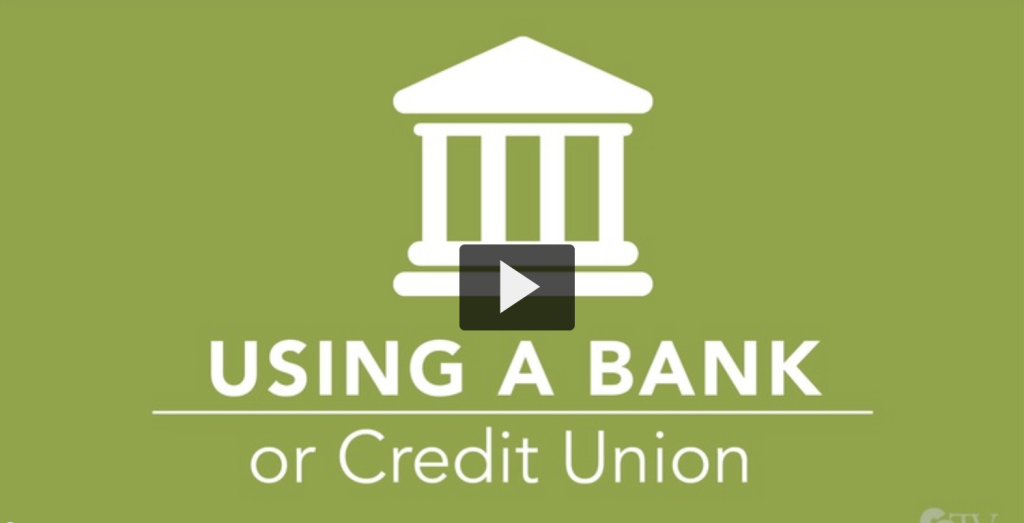Using a Bank or Credit Union



Using a bank or credit union allows you to keep your money safe and start building a credit history.
Most banks are insured by the Federal Deposit Insurance Corporation (FDIC), while credit unions are insured by the National Credit Union Administration (NCUA). This means if you are a victim of identity theft, or someone uses your account without authorization, then you won’t be held liable for those funds.
Having a bank account also allows you to deposit paychecks for free and gives you access to monthly account statements.
Consider the different types of banking options:
- Local banks are typically located in your regional community. They may offer better loan rates and lower fees than some larger banks.
- Large banks with many national branch locations may be a good option if you travel frequently or plan to move. Large banks offer a variety of both in-person and online banking services for your convenience.
- Credit Unions are not-for-profit, member-owned, and may specify the target group they serve (like teachers). Credit Unions typically have higher interest payouts on savings and lower interest rates on loans.
When choosing your bank, consider the following:
- What account fees will you be charged?
- What is your savings account interest rate?
- Is there a minimum balance requirement?
- Is there an ATM withdrawal fee?
- Is there a foreign transaction fee?
- Is online banking available?
- Does the bank have convenient operating hours?
There are a variety of factors to consider when choosing the bank that’s right for you. Decide which are most important and look for banks or credit unions that provide them.



